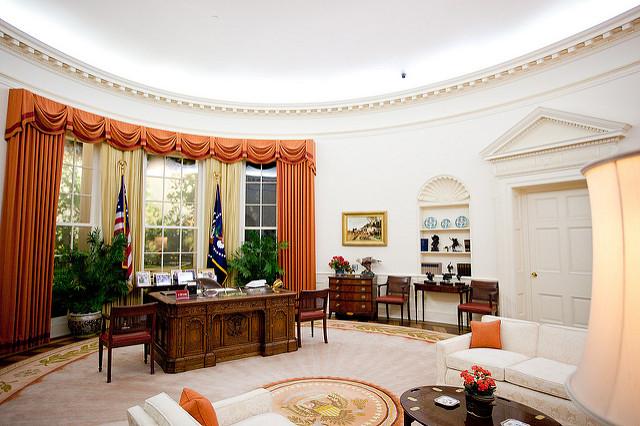America after the election
Posted By Richard N. Haass on October 27, 2016 @ 14:30

The ongoing presidential campaign in the United States stands out for its lack of civility and the vast differences between the candidates: the anti-establishment businessman Donald Trump on the Republican side and the polished politician Hillary Clinton representing the Democrats. The contest has exposed deep fault lines within American society and damaged the country’s global reputation. No surprise, then, that one of the few things Americans seem to agree on is that the campaign has gone on for too long. But soon it will be over. The question is: what comes next?
Polls suggest that Clinton, a former senator and secretary of state, will defeat the controversial Trump. But polls are not to be confused with reality. After all, going into June’s Brexit referendum, most observers believed that a victory for “Remain” was a sure thing. More recently, Colombian voters rejected a peace accord that was widely expected to receive popular approval.
All of this is to say that, while a Clinton victory may be likely, it is no certainty. The only poll that counts is the one on November 8. Until then, all we can do is speculate.
Yet some predictions can be made with greater confidence. There is little doubt that the US will emerge from this election a divided country with a divided government, regardless of who is president or which party has a majority in either chamber of Congress. Neither Democrats nor Republicans will be able to realize their objectives without at least some support from the other.
But no one should think that the only divide in American politics is between Republicans and Democrats. In fact, splits within the two major parties are just as deep, with large and highly motivated factions pulling each to their respective extremes—Democrats to the left and Republicans to the right. This makes compromise on centrist positions all the more difficult to achieve.
The rapid resumption of presidential politics will undermine compromise further. If Clinton wins, many Republicans will assume that it was only because of Trump’s flaws, and they will judge her likely to be a one-term president. A country favoring change, they will conclude, is unlikely to keep a Democrat in the Oval Office for a fourth term. Many Republicans (especially those who deny the legitimacy of a Clinton victory) will thus seek to frustrate her administration, lest she be able to run again in 2020 as a successful incumbent.
Similarly, if Trump manages to win, most Democrats (and even some Republicans) will—after recovering from their surprise and dismay—make it their highest priority to ensure that he does not have an opportunity for a second term. Given how much of Trump’s agenda his fellow policymakers would likely find objectionable, governing would be very difficult during his administration.
In either scenario, it may still be possible to make progress in a few key areas. The next US government might manage to enact legislation to fund the modernization of America’s aging infrastructure, a policy that both candidates and many in Congress favor. It might also be able to cobble together a majority to reform the US tax code—in particular, lowering the high rate for corporations and raising taxes on the wealthy. There could even be some reform of health care, President Barack Obama’s signature achievement, owing to serious implementation problems with the current system.
But other issues requiring cooperation between Congress and the president are unlikely to be addressed any time soon. One is immigration reform, which is as controversial in the US as it is in Europe. Another is trade: because the domestic political environment makes policymakers wary of supporting positions with dedicated opponents, both Trump and Clinton oppose the Trans-Pacific Partnership, even though its ratification would benefit America’s economy and strategic standing. Meanwhile, America’s deficit and debt are certain to rise, as there seems to be little or no will to reduce entitlement spending.
The foreign-policy implications of the election are somewhat different, because, under the US Constitution, the president enjoys considerable latitude. While only Congress can officially declare war or ratify treaties, presidents may use (or refuse to use) military force without explicit congressional approval. They can also enter into international agreements other than treaties, appoint powerful White House staff, and change US foreign policy by executive action, as Obama recently did regarding Cuba.
Under Clinton, this discretion could translate into establishing one or more safe areas in Syria, providing more defensive arms to Ukraine, and taking a tougher line toward North Korea [1] as it continues its nuclear and missile buildup. It is more difficult to guess what Trump would do. He is, after all, a political outsider, so no one knows how much of his campaign rhetoric would be translated into policy. Still, one could anticipate a Trump administration distancing itself from some traditional allies in Europe and Asia and standing mostly aloof from the Middle East.
What exactly will happen to America after the presidential election remains an open question. Though some outcomes can reasonably be expected, the only genuine certainty is that the 96% of the world’s population that does not vote in US elections will feel the effects [2] no less than Americans will.
Article printed from The Strategist: https://aspistrategist.ru
URL to article: /america-after-the-election/
URLs in this post:
[1] North Korea: https://www.project-syndicate.org/commentary/north-korea-confrontation-coming-by-richard-n--haass-2016-09
[2] feel the effects: https://www.project-syndicate.org/commentary/trump-and-clinton-foreign-policy-by-nabil-fahmy-2016-10
Click here to print.